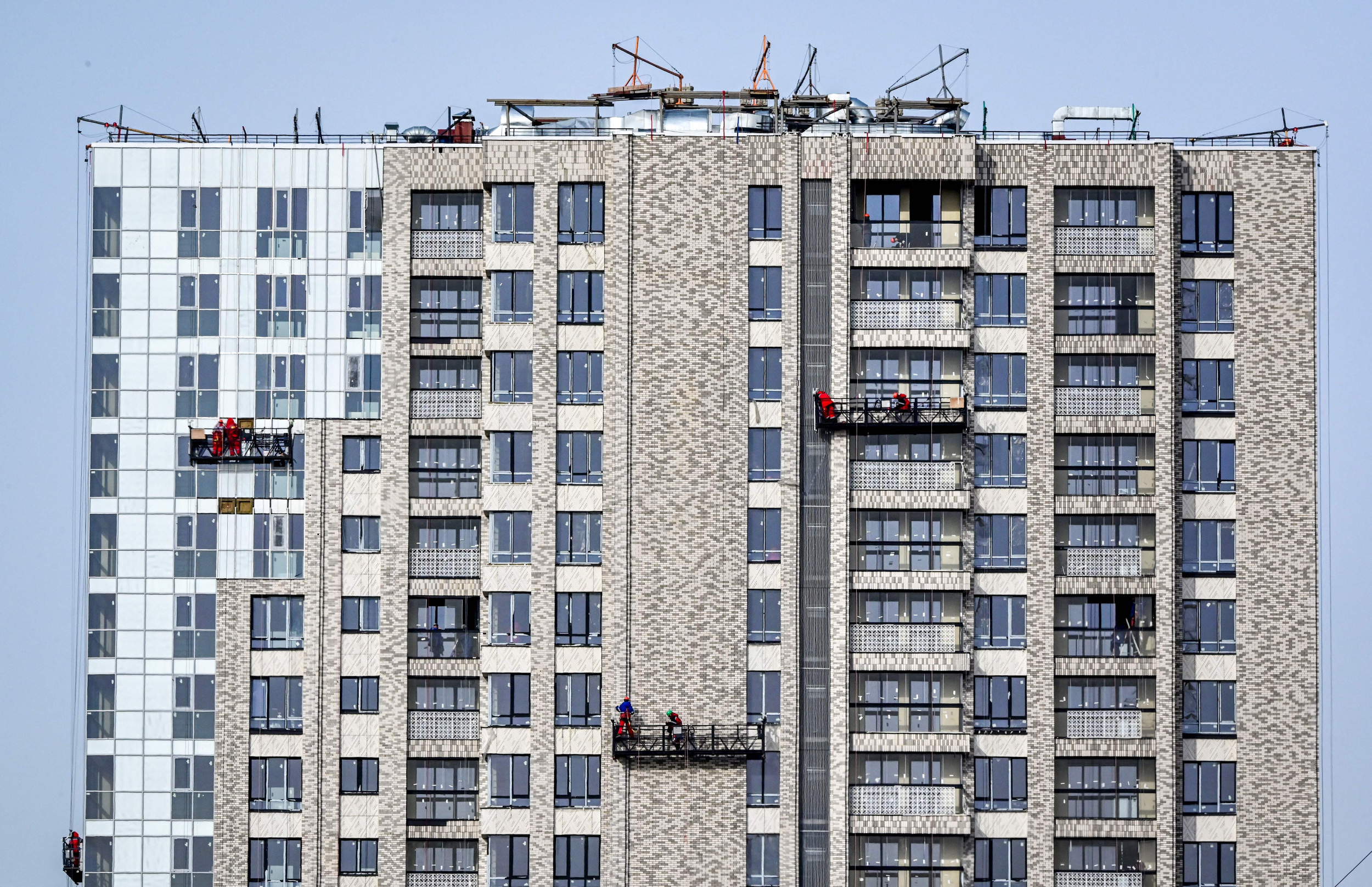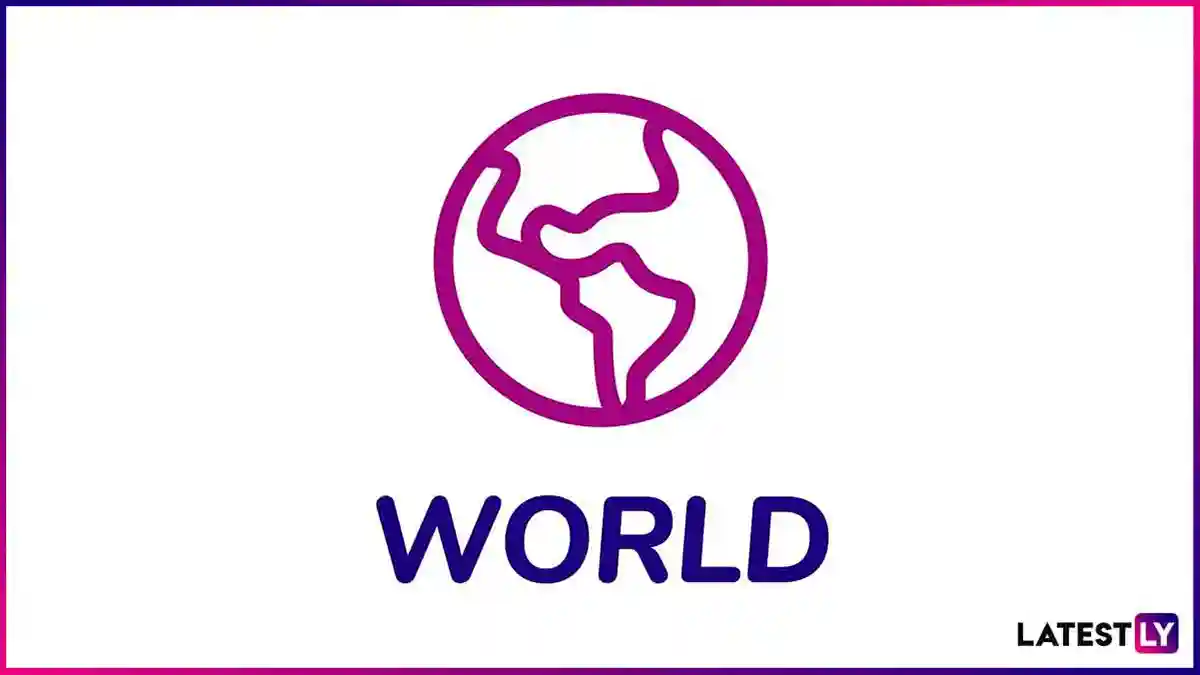
Nearly one third of real estate developers in Russia could soon be facing bankruptcy, in part due to sanctions stemming from Moscow’s invasion of Ukraine, according to an assessment by Kyiv.
Newsweek has contacted Russia’s Finance Ministry for comment.
Why It Matters
Russia’s housing sector is a bellwether for the country’ broader economy, which has been buffeted by sanctions, worker shortages and high interest rates.
The construction sector is a major employer and its decline threatens to ripple across the rest of the economy, posing a political problem for the Kremlin which has tried to present the war it started as not hitting the pockets or lifestyles of Russian citizens.
What To Know
Falling sales and high interest rates have pushed around one fifth of developers toward bankruptcy, and this could increase to 30 percent soon, Ukraine’s foreign intelligence service has said.
This echoes a warning by Russia’s deputy prime minister last month about the impact of the high key interest rate set by the country’s central bank.
But Ukraine’s foreign service said Russia’s construction industry also faces the problems of low demand, limited state support, and the outflow of resources to the war against Ukraine.
In a statement issued Monday, Ukraine’s foreign intelligence service said that due to falling sales and high interest rates, nearly 20 percent of developers in Russia were nearing bankruptcy and this figure could soon increase to 30 percent.
It said that those firms most at risk were in the mass-housing segment that depended on mortgage demand and that developers are postponing completion dates.
This assessment chimes with comments by Russian Deputy Prime Minister Marat Khusnullin last month that 20 percent of property developers were at risk of bankruptcy due to high mortgage rates, a level which could rise above 30 percent.
Low demand, limited state support, and resources going to the war against Ukraine are taking their toll with declining sales, growing debt burdens and construction projects being frozen.
In June, Russian banks rejected over half (50.6 percent) of mortgage applications, including borrowers with impeccable credit histories—the real cost of a mortgage, including insurance and commissions, is at least 25 percent per year, the Ukrainian analysis said.
In July 2024, the Russian government ended its preferential mortgage program which had kept rates artificially low at 8 percent over the previous four years.
This caused a boom in the real estate and construction sectors that helped maintain employment and boosted growth, a boon for Russia following the Western-led sanctions imposed at the start of the war.
But Khusnullin told the Vedemosti newspaper in August that since this program ended, 80 percent of mortgages were issued under targeted government initiatives, such as those for families with children, and only 20 percent on market terms.
Russia’s Central Bank (CBR) has focused on tackling inflation, which had been rising due to the economy being hit by high government spending on the military and a worker shortage.
The key interest rate had peaked at 21 percent, although has since fallen, with the CBR lowering it last week to 17 percent, but this still makes home loans tough to afford for most Russians.
“Such interest rates put pressure not only on households, but also on businesses,” Ukraine’s foreign intelligence service said.
Nine of Russia’s 20 largest residential developers saw significant revenue drops in the first half of 2025, according to consulting firm Macon, citing figures from state housing agency Dom.RF.
Sales at YugStroyInvest fell 45 percent year-on-year to 29 billion rubles ($348 million), GK Tochno’s revenue dropped 43 percent to 10 billion rubles and Setl Group’s income slumped by 41 percent.
What People Are Saying
Ukraine’s foreign intelligence service: “The industry is suffering from low demand, limited state support, and the outflow of resources to the war against Ukraine.”
Russia’s Deputy Prime Minister Marat Khusnullin told business newspaper Vedemosti in August: “About 20 percent of developers face serious risks…if the [CBR] high key rate continues, if money doesn’t flow into the sector, if citizens stop investing in real estate and if there’s no mortgage support, the share could exceed 30 percent.”
What Happens Next
Calls for the CBR to cut the key interest rate further are likely to continue, with the CEO of Sberbank, German Gref, last week calling for it be brought down to 14 percent by the end of the year.
However, annual inflation at 8.1 percent is still well above the 4 percent which could stall further rate cuts, adding to the construction sector’s woes.



